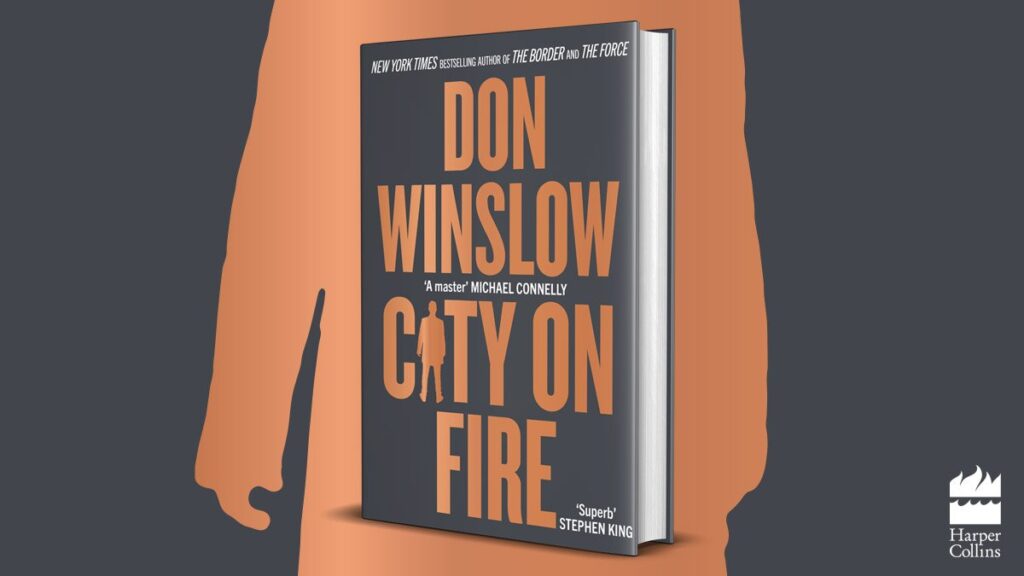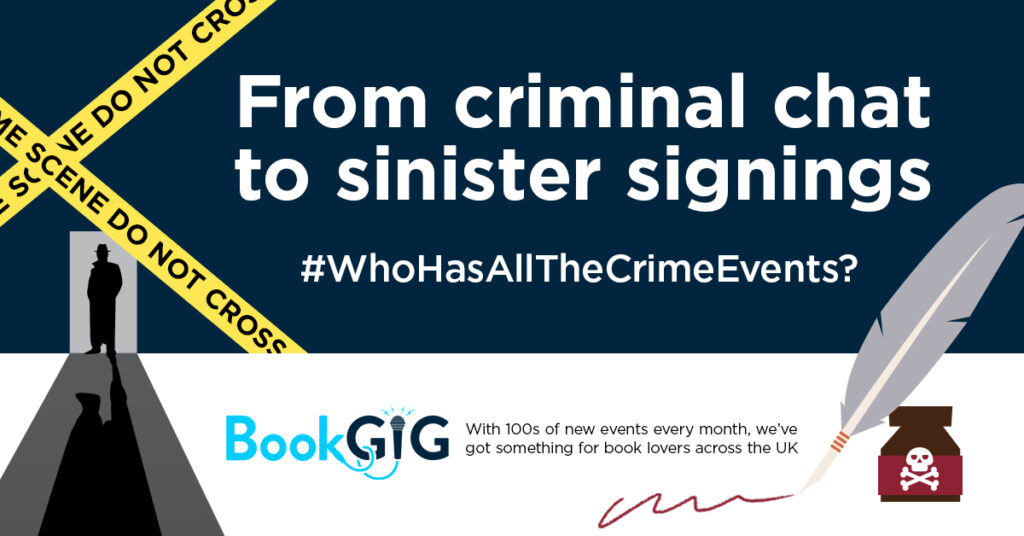 ‘So,’ you ask, ‘where did you get the idea for Harry from? I mean, some of those things he gets up to…’ You scrunch your eyes closed for a second as if trying to rid yourself of the memories. ‘Awful, just awful.’
‘So,’ you ask, ‘where did you get the idea for Harry from? I mean, some of those things he gets up to…’ You scrunch your eyes closed for a second as if trying to rid yourself of the memories. ‘Awful, just awful.’
Harry. He’s the killer in my book, Touch. He’s not particularly pleasant, I’ll give you that, but awful? I’m offended. I shake my head. ‘If you think Harry’s bad then you should meet some of my other friends,’ I say.
An uneasy look passes across your face, but I ignore it and begin tell you about Ted, a kind, charming and charismatic young man; Jeffrey, who likes to spend time arranging things in his flat; Dennis, who once had a bit of a problem with his drains; Harold, the odd one out; Fred, who’s got something missing in the IQ department, sure, but a salt-of-the-earth type nevertheless.
Shorn of their surnames my little coterie might appear innocent enough. They could be a bunch of guys who turn out down the park to play cricket on a Sunday afternoon or more likely that group of men who shuffle dominos in the corner of your local on Thursday evenings. There’s something about the decent, old-fashioned names – none of this Joshua, Ethan, Jake nonsense – which suggests dependability. As Fred packs away the dominos you’d go over, ask him what he’s drinking, get one in for him. Pint on the table in front of his big, rough, craftsmen’s hands, you’d ask how’s he placed to come round and sort out that dripping tap for you. Spare key’s under the flowerpot to the side of the back door, you’d say. Let yourself in any time.
Fred’s a builder, see? Surname of West.
On second thoughts maybe you should fix the tap yourself.
Bundy, Dahmer, Nilsen, Shipman, West. Like I said, friends of mine. Until a couple of years ago they were just names in a headline, but now I know them well. I devour true crime books in the way that Mr Dahmer used to like cooking up and eating pieces of human flesh. It’s a messy and unpleasant job, but hey, somebody’s got to do it. I say ‘messy and unpleasant’ because most true crime writing is pretty mediocre fare: Filled with schlock, sensationalised to the point of fetishism and illustrated with whatever nasty pictures that A. the writer can dig up and B. the editor feels safe to allow in.
So why read this true crime stuff? Research, mi’lud, is my defence, but perhaps not in the way you’d expect. Harry is not based on any one particular person, nor is he a portmanteau created from the characteristics of a number of offenders. No, he’s all my own work, his sickness all from my own head, his actions things I’ve thought long and hard about (at this point, were we having this discussion over dinner at my place, you might decide to make your excuses and get up and leave). In point of fact many of my ideas for Harry came before I’d ever come within a carving knife’s length of a book on serial killers. For me the reason for research is validation. Is what my antagonist does believable? Would he really do such a thing? Isn’t that just a little bit toooooo sick?
The answer to the previous question is always ‘no’. Fiction has nothing on reality. After a trawl through the true crime pantheon of serial killers you’d be correct in concluding that human cruelty knows no limits. Don’t believe me? Try this: Sit down with a pen and paper (or similar hi-tech device) and create a fictional killer yourself. I can guarantee* that however gruesome, abhorrent or just plain weird you make him – and in 99.9% of cases it is a him, so we’ll stick with the male pronoun – they’ll be a real life example who’s been there, done that (*however, see end of piece).
It begs a rephrasing of the question above: why read this fictional crime stuff? Out there in the real world there are monsters whose deeds are so awful that what really happened to their victims can never be reported. Why do we need fictionalised versions? My theory is that in the real world there often doesn’t seem to be a motive behind a serial killer’s crimes. Psychologists can point to all sorts of reasons, but none on their own or in combination can provide us with a definitive answer to why? A story does that. We might not believe the answer the author gives us, we might consider the explanation is too far-fetched, too clumsy or too clichéd, but nevertheless it’s there in black and white. The narrative arc takes us from not understanding anything on page one to God-like omnipotence at the end.
Harry’s got his reasons for doing what he does and there’s a trigger which sets him off on his killing spree. A unique set of fictional circumstances conspire to create Harry-the-killer and by the end of the book the reader can sleep easy knowing her/his next door neighbour won’t turn out the same way.
In the real world, however, people just like my new friends are working alongside you, shopping in the same stores, living on your street. One or two of them may be a little odd, but you can’t lock people up for being different and anyway most of them won’t turn into serial killers. Most.
Even if you did lock up all the odd people, what would you do about someone like Ted Bundy who has been described as good-looking, intelligent, kind, empathetic, career-minded? Just the type of young man American parents would be only too glad to have their daughters bring home.
‘Hi Mom. This is Ted…’
And yet if you created a fictional Bundy people wouldn’t believe in him. He’d be seen as being too nice, too normal. Where’s the motive in the character? Why would he do such things? Why indeed?
You don’t have to worry about that with my mate Harry. There’s no ambiguity about him. He’s not nice. He’s not normal. If Harry moved in next door you’d be ringing 999 before the removal van had disappeared around the corner.
‘So,’ you say, thinking it’s about time you were off somewhere more interesting, ‘that was a joke earlier, wasn’t it? The things you said about Harry’s sickness coming from inside your head. You’re not really like that… are you?’
‘What do you think?,’ I say. ‘I spend all day in wrapped up in my own thoughts thinking of ways to kill people. And, like Harry, I live in an isolated cottage, down a rough track, next to a dark wood. Make your own mind up.’
Postscript: I was a little dismissive about so-called ‘true crime’ reads earlier. There are a few good books out there which don’t deserve to be shelved under that category. One of the very best in, my opinion, is Wicked Beyond Belief: The Hunt for the Yorkshire Ripper by Michael Bilton. The book gives a fascinating insight into the police operation to catch Peter Sutcliffe. As much a social history of the nineteen seventies as an account of the ripper’s crimes, the story is enthralling, moving and – as you would expect – sometimes difficult to read. It’s a sobering thought too that despite massive police resources Sutcliffe was only caught by chance.
*Exception to Mark Sennen’s gruesome guarantee: Of course if you are yourself a serial killer then the guarantee doesn’t apply since you’ll be able to think up something far more heinous and shocking than any crime writer. Now go and turn yourself in at the nearest police station.
Click here to read an extract of Mark’s latest book Touch and meet Harry for yourself.


